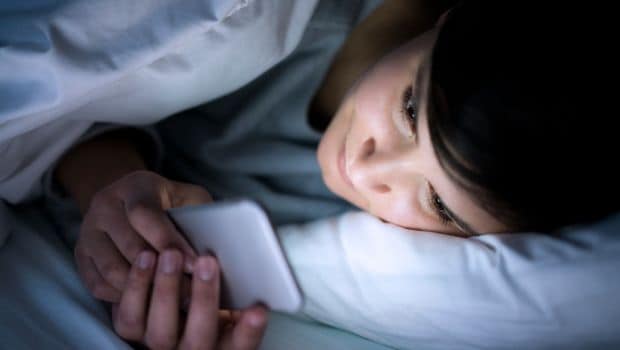
One in five teens regularly lose sleep over social media, waking up in the middle of the night to send or check messages on social media. This makes them three times more likely to feel constantly tired at school in comparison to their peers who do not log on at night, warns a new UK study.
Researchers at Wales Institute for Social and Economic Research, Data and Methods (WISERD) in the UK also found that girls are much more likely to access their social media accounts during the night than boys. They warned that this night-time activity could be affecting happiness and well being in the young people.
Over 900 pupils, aged between 12-15 years, were recruited and asked to complete a questionnaire about how often they woke up at night to use social media and times of going to bed and waking. They were also asked about how happy they were with various aspects of their life including school life, friendships and appearance. One in five reported ‘almost always’ waking up to log on, with girls much more likely to access their social media accounts during the night than boys.
Those who woke up to use social media nearly every night, or who did not wake up at a regular time in the morning, were around three times as likely to say they were constantly tired at school compared to their peers who never log on at night or wake up at the same time every day. Moreover, pupils who said they were always tired at school were, on average, significantly less happy than other young people.
“Our research shows that a small but significant number of children and young people say that they often go to school feeling tired – and these are the same young people who also have the lowest levels of wellbeing,” said Sally Power, professor at WISERD. “One in five young people questioned woke up every night and over one third wake-up at least once a week to check for messages. Use of social media appears to be invading the ‘sanctuary’ of the bedroom,” said Power.
The study findings support growing concerns about young people’s night-time use of social media. However, because of the complex range of possible explanations for tiredness at school, further larger studies will be needed before any firm conclusions can be made about the social causes and consequences of sleep deprivation among today’s youth.
The study was published in the Journal of Youth Studies.
[“source-ndtv”]










